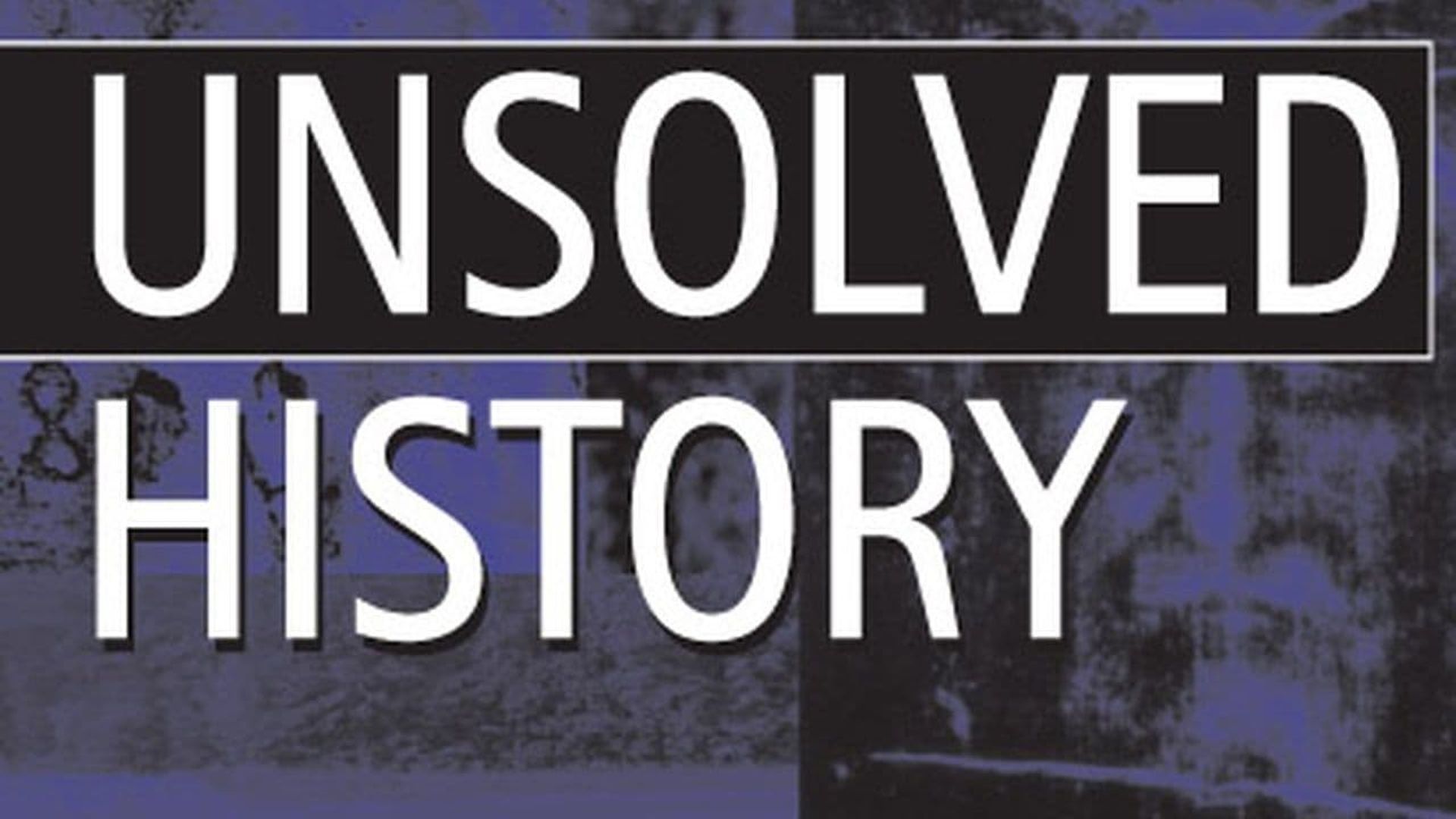

Unsolved History
Season 1
Historical mysteries are scientifically investigated.
Where to Watch Unsolved History • Season 1
20 Episodes
- Forensics in the White HouseE4
Forensics in the White HouseA team of Secret Service officers, historians and forensic scientists unravel the mysteries behind some of the most high-profile deaths and assassination attempts in the White House. The 1881 shooting of James Garfield prompted Alexander Graham Bell to invent a metal detector in order to locate the assassin's bullet and try to save his life. Zachary Taylor's body was exhumed to determine if he had been poisoned instead of dying from gastroenteritis. An assassination attempt on Franklin D. Roosevelt helped shape the function of today's Secret Service. And a plot to crash a passenger jet into the White House in order to assassinate Richard Nixon was foiled. - The Iceman MysteryE7
The Iceman MysteryScientists study the world's oldest mummy, a 5,300-year-old prehistoric man called ""Otzi"", discovered in the Alps in September 1991. The discovery of an arrowhead lodged in the mummy's back suggests that the Iceman may have been murdered. Forensic techniques are used to examine the various theories surrounding how and why the mummy died. - Pearl Harbor: Death of the ArizonaE8
Pearl Harbor: Death of the ArizonaThe destruction of the U.S.S. Arizona by the Japanese on December 7, 1941 was the defining moment for America's entry into World War II. Rarely-seen footage shows the entire sequence of events, and a National Park Service dive team explores the wreck. - The Death of the Red Baron
 E9
E9The Death of the Red BaronDuring World War One, on April 21, 1918, Germany's greatest fighter pilot - perhaps the best in the world - died as a result of one enemy bullet crashing through his torso while flying his legendary red Fokker Dr.I (Dreidecker) triplane, having just been in pursuit of an enemy plane. More than eight decades later the controversy over who fired the fatal shot still exists. This documentary carefully examines the stories of the four most likely to have downed Manfred von Richthofen. Scientific examination of the evidence reveals that, while most accounts credit Canadian pilot A. Roy Brown for the "kill", that is likely not the case. If not, then who is the hero? - The Roman Colosseum
 E13
E13The Roman ColosseumThe Roman Colosseum, completed in 80 A.D., was a showcase of gladiatorial contests, wild beast hunts, public executions and variety shows. The Colosseum is brought to life with a virtual reality simulation, based on a detailed study of the archaeological evidence. The rules of the gladiatorial games are examined and modern-day gladiators recreate the legendary battles. Scientists try to determine the truth behind the legend of the Naumachia, a mock naval battle which involved the flooding of the entire arena. - Who Killed Julius Caesar?E15
Who Killed Julius Caesar?Italian forensic investigator Luciano Garofano and Harvard criminologist Harold Bursztajn examine the death of Julius Caesar and theorize that his assassination may have been contrived by Caesar himself in order to hide a debilitating illness. Ancient documents and ruins are examined with 21st-century forensics, and Caesar's strange behavior, such as the dismissal of his bodyguard prior to the assassination, gives insight into the state of his mind. - JFK: Altered StatesmanE18
JFK: Altered StatesmanIn the last ten years of his life, John F. Kennedy suffered from Addison's disease, a disorder in which the adrenal glands fail to produce the hormone cortisol, which helps the body respond to stress. While JFK denied allegations that he had the disease, one of its side effects was to give him a bronzed glow, which may have helped him look healthy in TV debates against Richard Nixon. JFK was taking the drug cortisone to treat the disease; the possibility is examined that he may have been overdosing on this drug, causing increased anxiety, panic attacks, insomnia and an increased sex drive. JFK also suffered from chronic back pain for which he took painkillers. ""Dr. Feelgood"" Max Jacobsen supplied JFK with amphetamines, but claimed they were vitamins, hormones and enzymes. Drug addiction may have played a role in the Cuban missile crisis, JFK's rumored infidelity, and even his own assassination.




